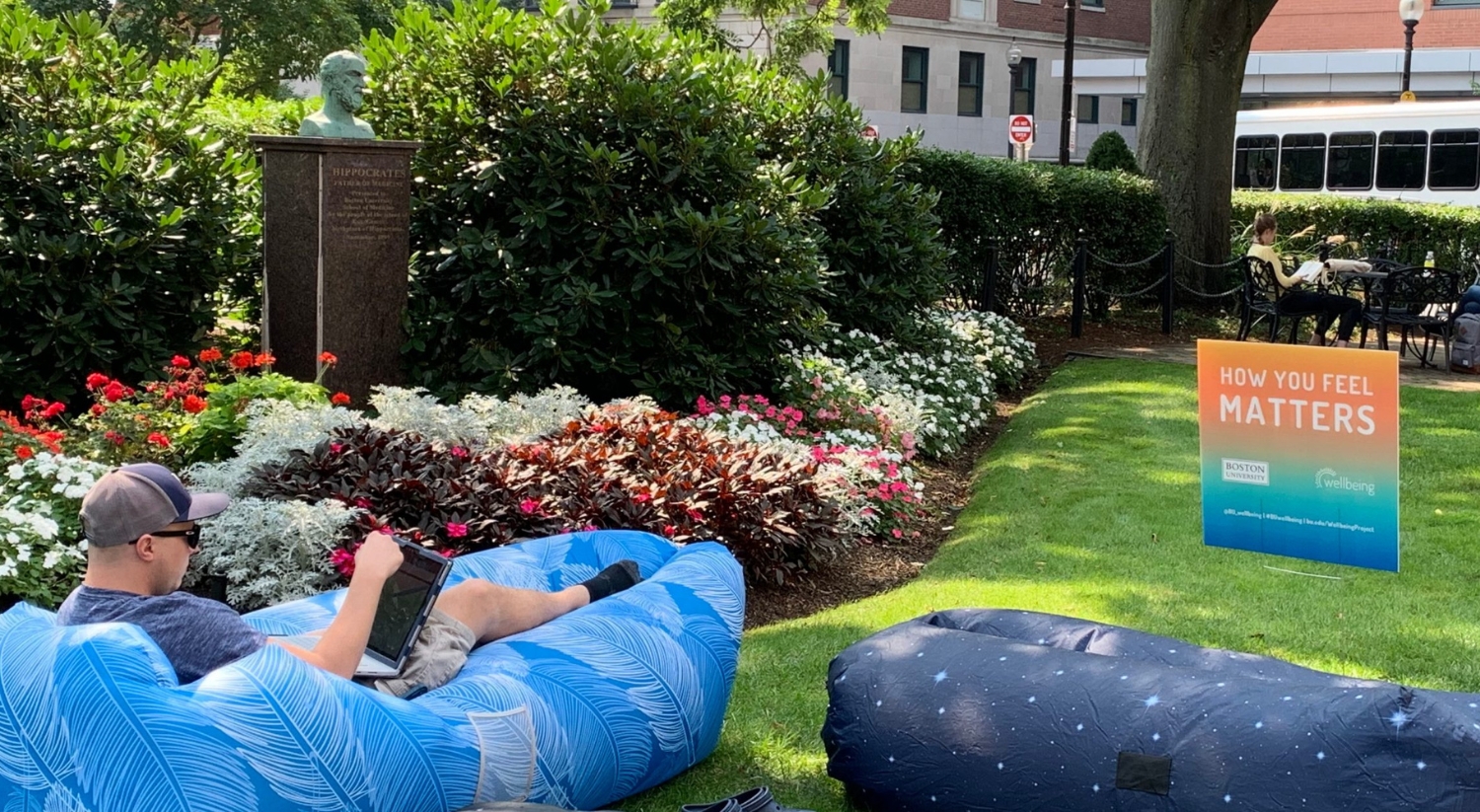8 Simple Self-Care Tips for College Students

Photo courtesy of Boston University Student Wellbeing
8 Simple Self-Care Tips for College Students
It’s important to take care of yourself. Here are eight ways to take care of yourself, even when you may not want to
For college students, it can be hard to balance a course load and a social life and practice self-care all at the same time. Oftentimes, taking care of ourselves is last on the list. We frequently find ourselves more worried about cramming for an exam than getting a good night’s sleep. You know—those nights when you drink a large Dunkin’ iced coffee at midnight so you can stay awake long enough to get those last few pages of studying in? In situations like this, it’s easy to put yourself last. But, it is important to be mindful of your overall well-being.
The good news is that taking care of yourself can be much simpler than you think. We paired with the experts at Boston University’s Student Wellbeing to identify eight key steps to taking caring—for your mind, body, and soul.
1. Balance
Strike a balance among all seven dimensions of your well-being: physical, emotional, environmental, spiritual, social, intellectual, and financial. All these dimensions working together creates a holistic approach to well-being, which is the goal of self-care.
2. Meditate
Incorporate five minutes of meditation or breathing into your day. Try the Headspace app for inspiration—all BU students have free access to Headspace with hundreds of meditation, sleep content, breathing exercises, and more.
3. Seek support when needed
Don’t be afraid to seek support for yourself. Whether it’s support for academics, substance abuse, self-harm, or to find accommodating resources on campus, BU can point you in the right direction. There are many resources that can help support all dimensions of your well-being right here on campus.
4. Find an activity that relaxes you
Try a relaxing activity for an hour. You might be surprised at the effect it has on you. Play a game, color, listen to music, or read a book. Find an activity that’s right for you and stick to it.
5. Reach out to friends
Connect with a friend to support your social well-being. Friends can make you feel included and that you belong where you are. Not to mention, they can also be a great outlet for stress: friends can provide comic relief and be there if you need to talk something out. Share a meal or call a friend to chat.
6. Give your body the nutrients it needs
Eating healthy can be really hard in college—make it a priority! When you feed your body, you feed your mind, soul, and overall well-being. Studying, waking up early for class, and writing papers can take a toll on you. Counter that by being mindful about what you put into your body so that you can keep going.
7. Get enough sleep
Sleep is an important factor for health—it impacts our stress, energy, and overall health and well-being. Good sleep habits can help you meet your academic and personal goals. BU has many resources to help you create a healthy sleep routine.
8. Be kind
It can never hurt to be kind. In fact, showing kindness to others can actually help you feel happier. It can make your sense of community feel stronger as well. Being kind can be as simple as holding the door open for someone.
Want to learn more? Check out the resources at BU Wellbeing.

Comments & Discussion
Boston University moderates comments to facilitate an informed, substantive, civil conversation. Abusive, profane, self-promotional, misleading, incoherent or off-topic comments will be rejected. Moderators are staffed during regular business hours (EST) and can only accept comments written in English. Statistics or facts must include a citation or a link to the citation.